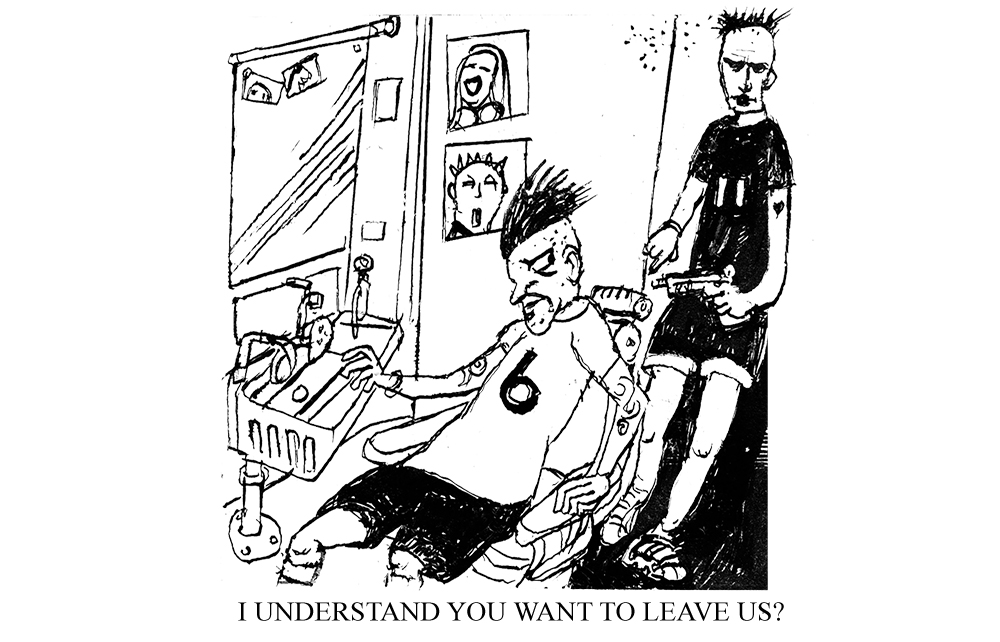What will this government be most remembered for? Ed Miliband’s wind turbines? Assisted dying? Farm bankruptcies?
No: rather, I suggest it will be football. There were some 34 million attendances at football matches in England’s top four divisions in the 2022/23 season. I bet that most of those fans have no idea what’s about to happen. If the Football Governance Bill passes – all 125 pages, 100 clauses and 12 schedules of it – the game could change drastically.
The case for the bill is that football is plagued by debt, racism, sexism and dodgy owners
The government proposes, as its Conservative predecessor did too, to create a state regulator for football. Yes, in addition to Ofwat and Ofem we are to have Ofball or Ofgoal or Ofside, or whatever the new regulator is to be called. No team in the football pyramid will be allowed to play professionally without its permission. A team’s crest, its home shirt colours, its home ground, its very name: none of these will be able to be changed without the regulator’s approval.
The story begins with two events that didn’t happen – or, rather, with one that didn’t and one that almost did. The first was the attempt to create a European super league, which quickly fell apart after a backlash from fans. The second was the extinction of Bury Football Club. Both panicked Boris Johnson’s government into rushing out a response, which came in the form of a review conducted by Tracey Crouch, then a Conservative MP, and guided by a panel of expert advisers, including Roy Hodgson, the former England manager.
The review ‘conducted an online survey seeking views on the issues being considered’. This received 20,000 responses, a tiny fraction of those who watch matches, making it hard to see how the report justifies its title: ‘Fan-led Review of Football Governance.’ The naming is especially peculiar since Crouch also states that ‘the final conclusions are mine alone’. Regardless, the review’s recommendation for securing football’s future was a state-backed regulator. The Conservative government took the proposal up, somewhat reluctantly. Labour, more enthusiastically, are pursuing it – hence a revised bill.
The main role of the regulator would be to take charge of the suitability of club owners and, most controversially, the distribution of revenue. The Premier League claims that 16 per cent of its revenues are redistributed down the lower leagues. The Championship wants more, but the Premier League is hesitant.
If the bill passes, clubs will be required to provide ‘effective engagement’ with fans over ticket prices, and to publish what action they are taking on equality, diversity and inclusion within the game as part of a new club corporate governance code that the regulator will introduce.
The case for the bill is that football is plagued by debt, racism, sexism and dodgy owners. One speaker claimed, when it was debated in the Lords last week, that trading history over 20 years suggests that only three premiership clubs are financially sustainable: Brentford, Brighton and Bournemouth.
Meanwhile, 80 per cent of Championship clubs have negative equity. According to this point of view, only a state-backed regulator will do – football is incapable of putting its own house on order.
Ministers insist that there will be no regulatory expansion or mission creep. But during that same debate last week, there were already calls for the expansion of the regulator’s powers: to women’s football, to fan safety, to player welfare, to reduce carbon footprints, to advance net zero. It isn’t difficult to see where all this might go.
What will the fans of an ambitious Championship club say when it starts selling players, and blames the regulator for seeking to drive down its debt? When fans demand lower ticket prices? When fans think that the fee the regulator is charging their club for its services is too high? When the regulator blocks a controversial prospective owner from taking over a club, but waves one through when it seeks to run a rival?
Perhaps there is indeed no alternative to the bill, but the paradox at its heart remains. Fans are being told both that English football is so strong that it’s the envy of the world and so fragile that it requires a state regulator. How can both be true at once? Or could it be that it is football’s very vulnerability – its innovation, risks and dynamism – that’s integral to its vibrancy?
Either way, if the new regulator is unpopular, ministers will try to hide behind the arm’s-length principle. But that didn’t work for the Post Office, and it won’t work for the railways. The oldest rule of football is: the referee never wins. Do politicians really want to make themselves the man with the whistle?








Comments